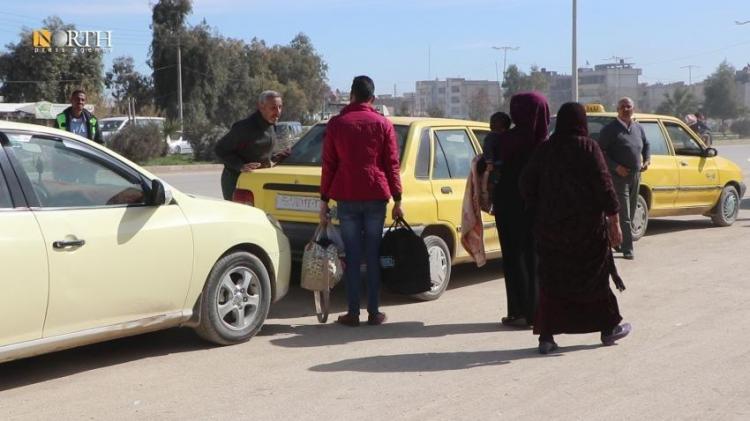Autonomous Administration continues ban on mass transportation in Qamishli
Qamishli – North-Press Agency
Abdulhalim Suleiman
Co-chair of the Interior Board in al-Jazira region Kan'an Barakat stated to North Press that with beginning of the third period of the curfew, the crisis management team issued a decision prohibiting mass transportation, including buses and taxis.
He added that individual transportation differs from the collective, explaining that the presence of three or more passengers in one taxi facilitates the spread of the virus, and that the crisis management team made the decision based on the opinions of the Transportation Offices in the three provinces of the Autonomous Administration of North and East Syria.
"To avoid friction"
Barakat pointed out that public transportation buses in the city of Qamishli are still out of service, in implementation of the curfew decision taken to prevent friction among the residents. Mass transportation
traffic, especially with buses, is still prohibited among cities and the garages are still closed.
With the beginning of the partial curfew period which entered into force on May 2nd, transportation vehicles started working and transporting passengers inside the city of Qamishli regularly, in addition to individual private transportation.
Discontent
For his part, taxi driver Hashem Muhammad said that the Transportation Office told them on Wednesday to stop work until further notice "because of the continued precautionary curfew to prevent the spread of coronavirus."
He added that he is committed to the curfew decision, although their work has started with the partial curfew period since May 2nd, but the percentage of the passengers was small.
Ibrahim Jabara, who suffers from Parkinson's disease, told North-Press that he has been affected by the decision to stop taxis' work, and that he has to wait long periods to find a taxi to take him to the city center to get the treatment despite the short distance.
The Autonomous Administration approved the extension of the curfew period in the areas of northeastern Syria in early May, allowing all shops, professions and markets to open except for cafes, restaurants, cafeterias, places of worship, schools, and universities, which remain closed for the duration of the curfew that begins at three o'clock in the afternoon until six in the morning the next day.
Vehicles carrying foodstuffs, detergents, medicines, infant formula, health supplies, sterilization materials, and fuel are allowed to move within all departments and around the clock during the curfew period.

